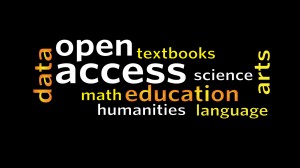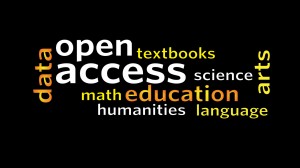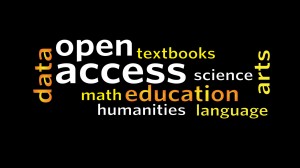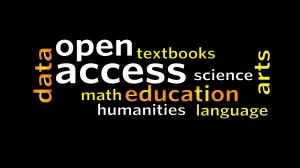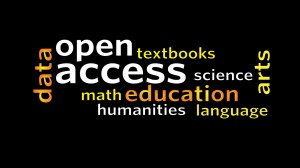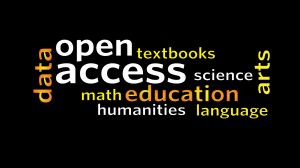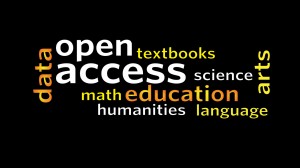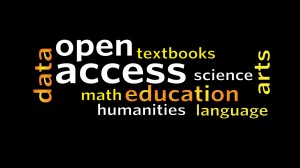Introduction to UBC Communities of Practice
Have you ever wished you could connect with others on campus who are doing work similar to yours? Come to this session to meet the facilitators of six different communities of practice on campus. Meet the people, get connected with the ideas, and come away inspired.
Celebrate Science!
How do we inspire young minds to love science and math? Join us for the third annual celebration of science in the Beaty Biodiversity Museum and we’ll show you how. Get first-hand accounts of turning personal passion for science into lifelong careers. Discover interesting science books for young people. Be amazed by some simple hands-on science activities. Not only will you become aware of a wide array of science books and programs for youth, but you will learn some science yourself.
Open UBC Week
Open UBC Week Wednesday, October 31 – Thursday, November 1, 2012 Open UBC is held in conjunction with International Open Access Week, which encourages the academic community to come together to share and learn about open scholarship initiatives locally and worldwide. Open UBC showcases a week of diverse events highlighting areas of open scholarship that […]
Open UBC Week: Beyond Walls: Teaching and Learning in the Open
Open education is based on a set of values that are shared by a wide range of scholarly practices: that knowledge should be free and open to use and re-use; that collaboration should be easier, not harder; that people should receive credit for contributing to teaching and learning; that concepts and ideas can be linked in unusual and surprising ways; and that learning should extend beyond institutional walls. One of the exciting and challenging elements about adopting open strategies in teaching and learning is the notion of exposing work and interacting with audiences outside of the traditional classroom.
Open UBC Week: Open Access: Effects and Consequences in the Management of Scientific Discourse
Open access has a number of effects on scientific discourse, some of which are only now becoming visible. A prominent effect of open access is the abolishment of the border between research inputs and outputs, transforming the process of scholarly inquiry. The creation and availability of data and finished research products tend to be more and more collapsed into one permanent flow of information, without fixed boundaries between a dynamic research process and a static notion of “publication.” Enabling researchers to permanently and openly access data and results at all processing stages changes the interactivity, the participational structure and the nature of scientific enquiry. In addition to changing the function and the nature of what constitutes “a publication,” and apart from the change in financial underpinnings of a new science, there are ripple effects for what is “excellent” research and for research evaluation. New notions of ownership and copyright adapted to a largely decommodified science discourse need to evolve. Roles of librarians will need to be redefined. The status of the book will be redefined. It is argued that these effects are embedded in, and part of, a new way of reorganizing cultural knowledge and its preservation.
Open UBC Week: Uncovering the Impact Story of Open Research
Research today is often evaluated by the journal impact factor of a published article. This has left little room for innovation: it is difficult for new journals to achieve a high impact factor, and non-traditional research products are often published outside of journals. It has also failed to recognize and reward broad impact and post-publication use. As scholarly publishing and interactions move online, scholarly and public impacts are becoming easier to follow and measure. Heather Piwowar will talk about tools that can track these impacts today, and discuss how these tools are empowering revolutions in open access publishing and open data repositories.
Open UBC Week: An Overview of Open Learning Technologies at UBC
Over the last several years, the Centre for Teaching, Learning & Technology (CTLT) at UBC has developed open learning technologies that support e-Portfolios, course blogs, communities of practice, classroom backchannels and microblogging, open educational resource (OER) development, peer evaluation, and other learning and web-publishing needs. These open tools support online and blended learning inside and outside of classroom contexts; allow UBC to investigate how new technologies may be incorporated into learning environments in innovative and sustainable ways; and facilitate communication, engagement, collaboration and knowledge transfer. This session will provide an overview of the open tools and discuss how they are used at UBC to enhance active learning.
Open UBC Week: Unglue.it: E-Books Unstuck
What if you could give a book to everyone on earth? Get an e-book and read it on any device, in any format, forever? Give an e-book to your library to share? Own DRM-free e-books, legally? Read free e-books, and know their creators had been fairly paid? What if you could give your favourite book to the world?
At Unglue.it, you can pledge toward creating e-books that will be legally free, worldwide. These books have already been traditionally published, but they’re stuck: legal restrictions keep you from being able to enjoy and share them.
Open UBC Week: The Sea Around US
Daniel Pauly and his team will showcase their highly acclaimedTheSeaAroundUsproject. This openly available research portal examines the impact of fisheries on marine ecosystems of the world, and offers mitigating solutions to a range of stakeholders throughAnalyses & Visualizations, articles inpeer-reviewedjournals and other media (News & About) that is posted on the portal along with other data sources the team has developed. These includeExclusiveEconomicZones,LargeMarineEcosystems, theHighSeas and other spatial scales,globalmapsandsummaries. Pauly, the 2012 recipient of the Nierenberg Prize for Science in the Public Interest and 2012 winner of UBC’s Innovative Dissemination of Research Award, will discuss his motivation for opening up access to his research worldwide as represented by such projects as The Sea Around Us.
Open UBC Week: First Nations and Open Access
Join Larissa Grant and Jason Woolman from the Musqueam Indian Band in a discussion on what open access means in the context of First Nations peoples. How can we make items truly open access if there are cultural sensitivities? Grant and Woolman will give an overview of some of the key considerations for making items open access, and highlight a recent development project at UBC’s Museum of Anthropology that gives researchers access to thousands of never-before-seen items.
